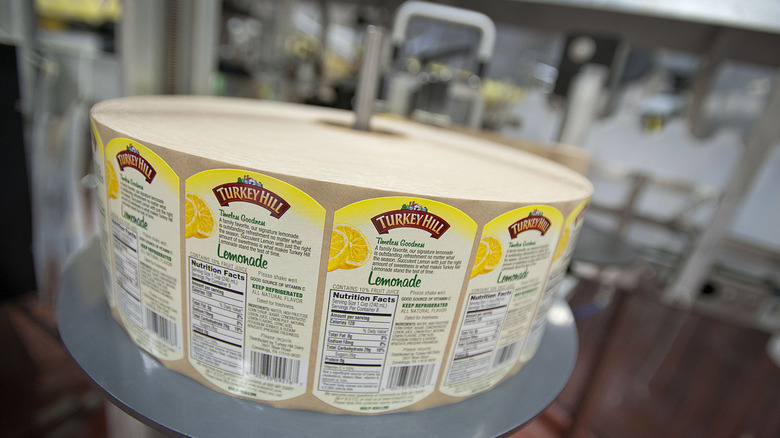New Study Reveals How Language On Labels Can Change Your Sense Of Taste
Nothing can kill a food craving faster than finding out that other people didn't like it. While we mostly fancy ourselves to be independent thinkers, a new study shows that we are influenced by food packaging and marketing teams more than we realized.
Food manufacturers are working overtime to figure out how to get their products from store shelves to your table. According to Ohio State News, Associate Professor Christopher Simons conducted a survey through his food science and technology course at Ohio State University that had some interesting results. The study labeled packages of saltine crackers and chocolate chip cookies as either "new and improved," "consumer complaint," or "factory typical" and asked participants to taste the foods and assess them for appeal and freshness after reading the description on the labels. Even though the foods were all the same, consumers gave lower marks to those labeled as "consumer complaint" and suggested they were stale.
Simons acknowledges that the people conducting the survey were not surprised that the products featuring negative labeling received negative reviews. What did surprise them was that the survey takers' positive reactions to foods labeled "new and improved" were not nearly as strong as the bad reaction to foods labeled with unfavorable terms. These findings could have an impact on how food manufacturers label their products going forward.
The survey might help marketing teams move more products
A recent study on preference and perception of food quality based on labeling shows that consumers react strongly to foods labeled with negative wording (via ScienceDirect). So, should food manufacturers start covering their products with labels that feature words like "delicious" and "improved?" Not so fast.
Despite rigorous consumer testing yielding positive reviews, it is estimated that 70% to 80% of all new food products are doomed to fail even after applying information gathered from studies (via Ohio State News). This particular survey showed that consumers retain a negative experience or association in a greater capacity than they accept a product that promises a positive reaction. They remembered not liking the taste of the foods labeled negatively more than they recalled enjoying the foods labeled as "new and improved."
Food producers have traditionally relied on positive wording to catch consumers' eyes, but they might rethink their approach and improve product movement by discovering which words make customers feel skeptical. It's one case where manufacturers may benefit from focusing on the negative.

